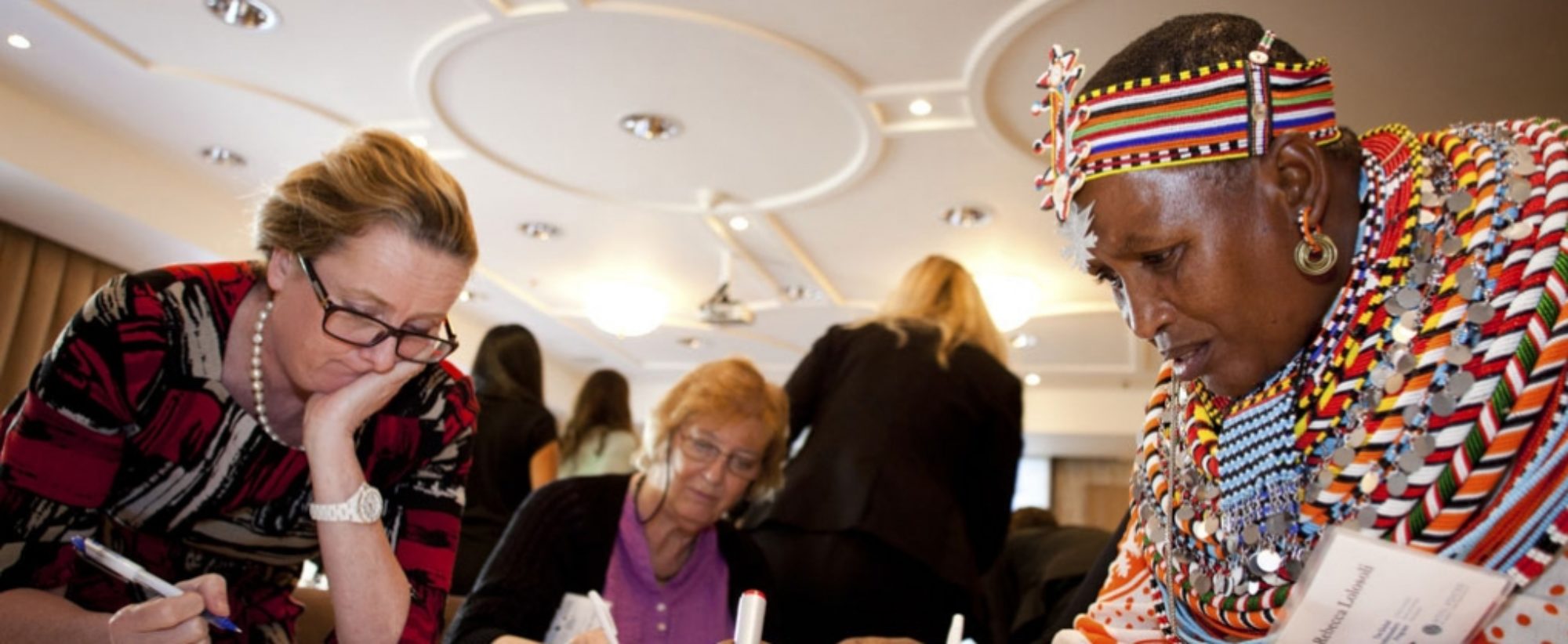RESOURCES
A range of reports and articles on the importance of mentoring for developing leadership and creating a more enabling environment for expanding women’s economic opportunity.
The Power of a Global Network (2020)
The Global Innovation Forum is a nonprofit startup that connects entrepreneur, small business, development, and university communities with policymakers and select corporations to explore the opportunities and challenges of engaging in the global marketplace.
The Global Gender Gap Report (2017)
The Global Gender Gap Report benchmarks 144 countries on their progress towards gender parity across four thematic dimensions: Economic Participation and Opportunity, Educational Attainment, Health and Survival, and Political Empowerment. In addition, this year’s edition also analyses the dynamics of gender gaps across industry talent pools and occupations.
What the Best Mentors Do (2017)
Coaching and leadership expert Anthony K. Tjan explores key elements of successful mentorship in the Harvard Business Review.
What Board Directors Really Think of Gender Quotas (2016)
This comparative investigation from the Harvard Business Review explores different perceptions of gender quotas through interviews of male and female board directors of 300 publicly traded companies in the U.S. and Europe.
Tackling the gender pay gap: From individual choices to institutional change (2016)
This brief from UN Women offers research findings, analysis and policy recommendations on closing on closing the gender gap and reducing inequality to promote social justice and extend state support to working parents.
“Women, Business and the Law 2016: Getting to Equal” (2016)
This report from the World Bank examines laws and regulations affecting women’s prospects as entrepreneurs and employees in 173 economies, across seven areas: accessing institutions, using property, getting a job, providing incentives to work, building credit, going to court, and protecting women from violence. The report’s quantitative indicators are intended to inform research and policy discussions on how to improve women’s economic opportunities and outcomes.
“How Advancing Women’s Equality Can Add $12 Trillion to Global Growth” (September 2015)
A new McKinsey Global Institute report finds that $12 trillion could be added to global GDP by 2025 by advancing women’s equality. The public, private, and social sectors will need to act to close gender gaps in work and society.
“Why Men Have More Help Getting to the C-Suite” (November 2015)
This article in the Harvard Business Review offers insight into the genesis of mentor/sponsor relationships and provides advice about how all stakeholders – men, women and organizational leaders – can make the playing field more fair. The key is understanding the basic economic motivators behind sponsorship. Understanding those drivers can help women be more deliberate about the kinds of relationships they need to develop to achieve their aspirations.
“Progress Report of the World’s Women 2015-2016” (May 2015)
Progress 2015 draws on the experiences of those working toward gender equality and women’s rights around the world. It provides the key elements of a far-reaching new policy agenda that can transform economies and make women’s rights a reality.
“The Rise of Gender Capitalism” (Fall 2014)
This article from the Stanford Social Innovation Review explores how investing with a gender lens can create financial and social impact by increasing women’s access to capital, promoting workplace equity, and creating products and services that improve the lives of women and girls.
“Voice and Agency: Empowering Women and Girls for Shared Prosperity” (2014)
This report from the World Bank Group represents a major advance in global knowledge on this critical front of expanding women’s agency. The vast data and thousands of surveys distilled in this report cast important light on the nature of constraints women and girls continue to face globally. This report identifies promising opportunities and entry points for lasting transformation, such as interventions that reach across sectors and include life-skills training, sexual and reproductive health education, conditional cash transfers, and mentoring.
“Seven Habits of Highly Effective Mentors” (June 2013)
This how-to article from the Stanford Social Innovation Review addresses how to make the most of being a mentor.
“Early-Stage Enterprises Need More than Money” (April 2013)
While financial assets and other collateral are critical in starting an enterprise, other less tangible resources are also key, including access to networks and mentoring.
“High Potentials in the Pipeline: Leaders Pay It Forward” (June 2012)
The fifth report from Catalyst’s longitudinal project The Promise of Future Leadership: Highly Talented Employees in the Pipeline. The report finds that people who pay it forward experience greater advancement and higher compensation and that, perhaps contrary to popular belief, women pay it forward and to a greater extent than men.
“Women as Mentors: Does she or doesn’t she?” (2012)
A study by Development Dimensions International which discusses how women benefit from mentoring and why more women should engage in mentoring relationships.
“Women Entrepreneurs: too often trapped in the microenterprise ghetto” (October 2011)
Research shows that women entrepreneurs benefit more from early-stage strategic assistance and coaching, and strong early networks encourage women to take risks during the start-up phase of businesses.
“Mentoring Necessary but Insufficient for Advancement” (December 2010)
The third report from Catalyst’s longitudinal project The Promise of Future Leadership: Highly Talented Employees in the Pipeline. The report discussing how mentorship narrows, but doesn’t’t close, the gender gap, and how men still reap greater rewards from mentoring than women do.
“APEC Innovation Briefing” (December 2010)
Small and medium enterprises (SMEs) make a significant contribution to job creation and to increasing a country’s competitiveness. SMEs account for 90% of all businesses and employ approximately 60% of the workforce in Asia-Pacific Economic Cooperation (APEC) economies.
“Why Men Still Get More Promotions” (September 2010)
An important Harvard Business Review article on why companies’ attention to mentoring women doesn’t necessary translate into more promotions. The article discusses differences between mentorship for men and women, specifically whether women are as likely as men to be mentored, whether mentoring provides the same benefits to men and women, and whether women have the same kind of mentors. (HBR subscription required to view full article.)
“Creating Successful Mentoring Programs: A Catalyst Guide” (January 2003)
Catalyst’s six-chapter guide on how to create an effective mentoring program for your company which includes best practices, tips and evidence that mentoring is essential for career advancement.
“Making Partner: A Mentor’s Guide to the Psychological Journey” (March 2000)
A Harvard Business Review article on how partners at firms can help junior employees transition to partnership by communicating explicitly what works for them and why, encouraging the aspiring partner to develop various role models, and by providing practical support at difficult times. Contains advice on mentoring and applicable guidance for mentoring in general, outside the specific framework it discusses. (HBR subscription required to view full article.)

Monitoring & Evaluation
Our impact — developing leadership, increasing revenue and expanding networks.




